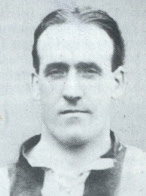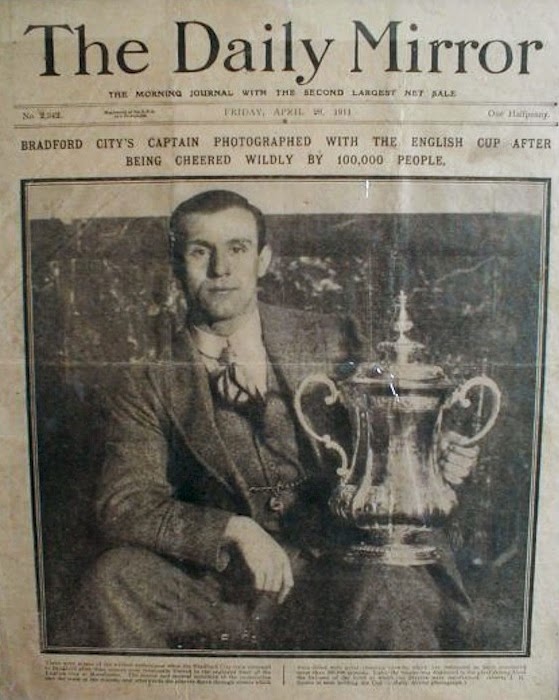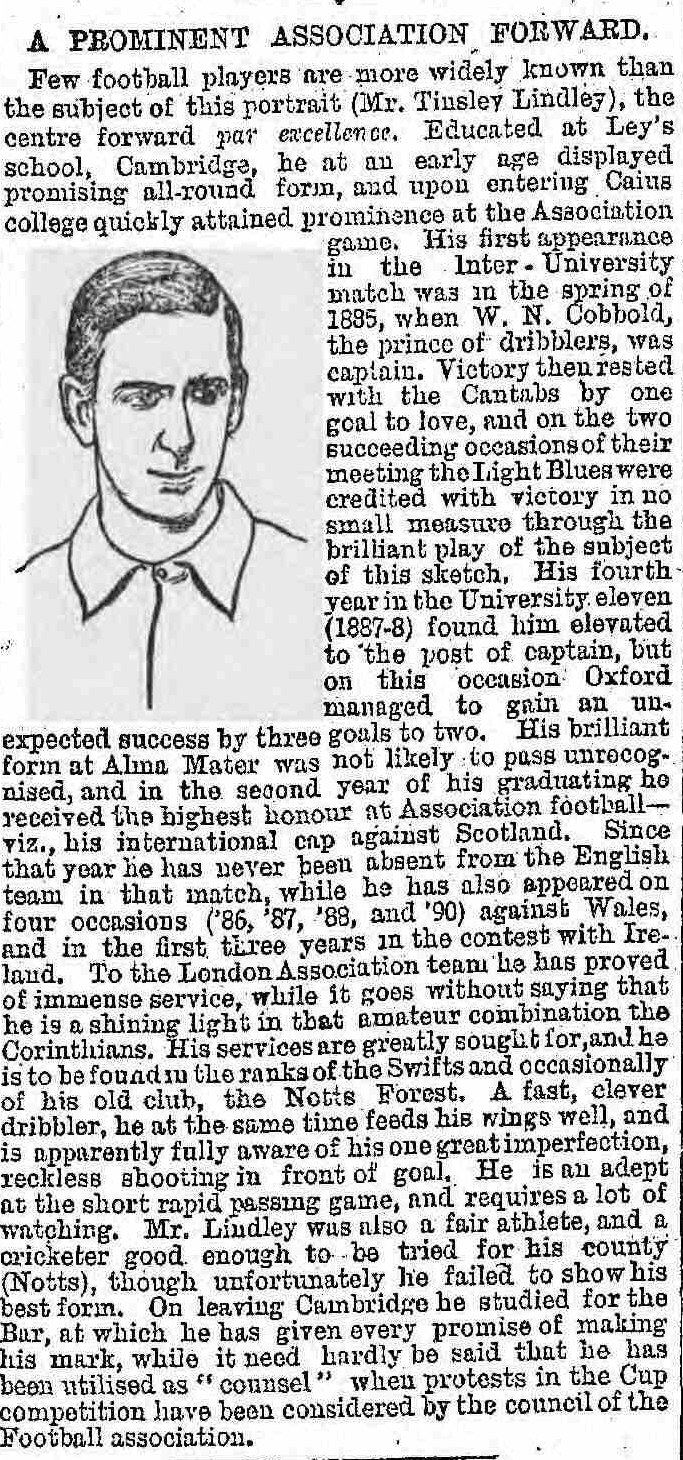The Football Association of Wales was founded in March 1876. At this point there were already a number of well established clubs in the Principality- mostly in the north East. Let's take a closer look at the development of the game in Wales up to this point. ![]()
For many years it was held that the Wrexham club was founded in 1873. There is, however, compelling documentary evidence that the football branch of the Wrexham Cricket club was launched in
1864. and accounts of early matches can be read on the
Welsh Newspapers Online section of the
National Library of Wales website.
Previously Druids FC of Ruabon claimed to be the oldest club in Wales, originating from the Plasmadoc club formed in 1869. The Shropshire team Oswestry (who feature large in the early history of Welsh Cup and international football) may have had its origins as early as 1860.
A report in
The North Wales Chronicle and Advertiser for the Principality (19.03.64) shows a misunderstanding of the game, each instance of a goal being scored (the original term was won) being seen as the conclusion of a 'game':
HOLYHEAD.A FOOTBALL MATCH between eleven of the Anglesey Collegiate School and eleven of Holyhead was played on Friday the 11th. Nine games were played, the Collegiate eleven winning five. The last game won by the Anglesey Collegiate School was objected to by the Holyhead side, though the ball was played fairly into their goal.
The North Wales Chronicle and Advertiser for the Principality (19.03.64)
Denbighshire County Cricket Club acquired a football in October 1864 and were playing scratch games soon after.
In the south west corner of Wales, at Milford Haven in Pembrokeshire, the local college was an early centre of the Association game. The College was the first football club in Wales to join the Football Association (1868). A report of a match played by Milford College appeared in The Pembrokeshire Herald and General Advertiser (29.11.67):
MILFORD FOOTBALL-A match was played at Milford, on Wednesday, the 27th inst., between the Milford College and Haverfordwest Grammar School, which ended in favour of the former, who obtained eight goals to none. The match was played with great spirit though unsuccessfully on the part of the Grammar School. For the College, Messrs Fincham, Mason, Harries, Child, Austin. Evans, Stokes, and Summers (captain) and for the Grammar School, Messrs Davies, E. Saunders, T. Baker, Reynish, and Wutbins, played well. The goals were kicked as follows: Fincham 3, Mason 3, Harries 1, Child 1
The Wrexham and Denbighshire Advertiser and Cheshire Shropshire and North Wales Register (16.11.67) reported a match between Wrexham Provincial and a Ruabon Grammar school side that featured Llewellyn Kenrick, who went on to b
ecome first chairman and honorary secretary of the Football Association of Wales. Aberystwyth Times Cardiganshire Chronicle and Merionethshire News (31.12.68) reported: CORWEN FOOTBALL.-The Hon. C. H. Wynn has kindly encouraged manly sports and innocent recreation (which are so much needed in North Wales), by presenting the town players with a magnificent football of the very best London make, and its admirable qualities were fully shown in a friendly match played on Saturday week, in a field near the new footbridge, kindly lent by Mr Hugh Jones, postmaster.
In the 1870s familiar names were beginning to emerge- Ruabon Druids, Plasmadoc, Wrexham etc. The general rule seems to have been that in the south Rugby was the favoured code whereas the north and mid-Wales were Association minded.
In the early 1870s new clubs were formed with regularity throughout north and mid Wales: Portmadoc (Porthmadog) Cricket Club formed a football section in October 1872. In the same month Cefn played their 1st match at Plasmadoc Park and Llangollen FC was formed.
January 1873 saw Borth and Aberystwyth playing each other. The following month Carnarvon (Caernarfon) were in action at Portmadoc (Porthmadog).
Other clubs getting mentions in the press were: Whittington, Whitchurch, St Oswalds (Oswestry) and Wynnstay. Wrexham had a number of minor clubs such as Grove Park, whilst Ruabon was home to Rovers and Volunteers (later merging to form the Druids).
In 1875 the County of Denbigh XI featured a number of future internationals : L. Kenrick, D. Thompson, Dr Grey (Wales); H. Wace (England), and J. Hawley-Edwards (Wales & England).
The Football Association of Wales (initially known as The Cambrian Football Association) was formed for the express purpose of arranging the international fixture with Scotland. Early accounts show that the association was committed to representing both north and south wales, despite the virtual absence of clubs in the south.
Wales' first international XI was drawn from the following clubs:
Druids, Shropshire Wanderers, Oxford University, Wrexham, Oswestry, Shrewsbury.







.jpg)



















